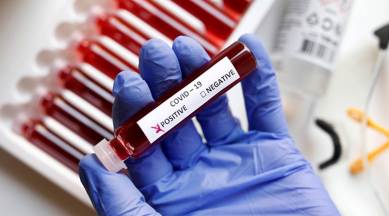Stay updated with the latest - Click here to follow us on Instagram
PGI to test antigen kits on ‘pre-surgical’, non-Covid patients
A source from the hospital’s virology department states that the value of this study is in finding out whether a larger mass of patient can be efficiently screened for the disease, once OPDs open at hospitals.

PGIMER has ordered ICMR-validated rapid antigen test kits made by Indo-European company S D Biosensor to check their efficacy and sensitivity on non-COVID patients such as patients scheduled for surgery at the hospital or patients admitted to other departments or visiting for an OPD consultation in the future.
The SD Biosensor kits are one of the two antigen testing kits validated for commercial use by the ICMR. These kits have been proven to have a high specificity of over 90 per cent, but a lower sensitivity towards detecting antigens in the body, i.e. between a range of 50 and 85 per cent. Furthermore, these rapid kits have been validated at AIIMS by testing them in a pool of already RT PCR diagnosed COVID-19 patients, and seeing how many are tested false negatives using this antigen test.
monthly limit of free stories.
with an Express account.
At PGIMER, however, this kit will now be used to study its use on non-COVID patients at the hospital. A source from the hospital’s virology department states that the value of this study is in finding out whether a larger mass of patient can be efficiently screened for the disease, once OPDs open at hospitals. “Once they open, it would not be easy to use RT PCR quickly and efficiently on the large number of patients we usually have at PGIMER. Hence, we wish to see if antigen testing can be an accurate screening toll in this population,” the source said.
Kerala-based antigen kit found to be inaccurate
Meanwhile, PGIMER continues to be an ICMR-approved validation site for different antigen testing kits. One such indigenous kit, made by a Kerala-based company, was just tested at PGIMER on 100 RT PCR positive patients. “Only about five to six per cent of these patients tested positive by the antigen test while the rest were all false negatives. Hence that particular kit has been rejected,” said Dr Mini P Singh from the Virology Department.
Dr Singh said, PGI is set to test and validate other antigen kits in the future as the ICMR wishes to bring more commercially viable antigen kits to the market to ensure competition which can help regulate prices of these kits.
Antigen tests, which work by identifying specific ‘spike proteins’ on the surface of the coronavirus in a patient’s blood, have now been widely used across India for screening and surveillance activities. However, some states like TN and Maharashtra have reported a high percentage of false negatives produced by these kits.